PLUME
Published by the Penguin Group
Penguin Group (USA) Inc., 375 Hudson Street
New York, New York 10014, USA
USA | Canada | UK | Ireland | Australia | New Zealand | India | South Africa | China
Penguin Books Ltd, Registered Offices: 80 Strand, London WC2R 0RL, England
For more information about the Penguin Group visit penguin.com
First published by Plume, a member of Penguin Group (USA) Inc., 2013
Copyright The Teaching Company LLC, 2013
All rights reserved. No part of this product may be reproduced, scanned, or distributed in any printed or electronic form without permission. Please do not participate in or encourage piracy of copyrighted materials in violation of the authors rights. Purchase only authorized editions.
Excerpt from The Letters of Virginia Woolf, Volume III: 1923-1928, edited by Nigel Nicolson and Joanne Trautmann. The Letters of Virginia Woolf published in six volumes. Letters copyright 1975, 1976, 1977, 1978, 1979, 1980 by Quentin Bell and Angelica Garnett. Published by Mariner Books and Hogarth Press. Reprinted by permission of Houghton Mifflin Harcourt Publishing Company, The Random House Group Limited, and The Society of Authors, as the literary representative of the Estate of Virginia Woolf. All rights reserved.
Excerpt from A Generative Rhetoric of the Sentence by Francis Christensen from Notes Toward a New Rhetoric, Third Edition, by Francis and Bonniejean Christensen, edited by Don Stewart. Copyright Don Stewart, 2007. By permission of Don Stewart.
 REGISTERED TRADEMARKMARCA REGISTRADA
REGISTERED TRADEMARKMARCA REGISTRADA
LIBRARY OF CONGRESS CATALOGING-IN-PUBLICATION DATA
Landon, Brooks.
Building great sentences : how to write the kinds of sentences you love to read / Brooks Landon.
pages cm
A PLUME BOOK.
Includes bibliographical references and index.
ISBN 978-1-101-61402-0
1. English languageSentencesStudy and Teaching. 2. English languageRhetoricStudy and Teaching. I. Title.
PE1441.L334 2013
808'.042dc23 2012051011
While the author has made every effort to provide accurate telephone numbers, Internet addresses, and other contact information at the time of publication, neither the publisher nor the author assumes any responsibility for errors or for changes that occur after publication. Further, publisher does not have any control over and does not assume any responsibility for author or third-party Web sites or their content.
ACKNOWLEDGMENTS
C ant begin to suggest ways of building great sentences without lots of examples of what built great sentences look like. So my first debt is to the writers beyond naming and numbering whose sentences have rewarded readers over the centuries and have intrigued and inspired me over the years. Some of those marvelous writers have been my students in a Prose Style class Ive been offering at Iowa in one form or another for thirty-four years, and I thank my students for all they have taught me. One in particular, Nathan Kreuter, is now Professor Kreuter and is adding his insights to our appreciation and understanding of prose style. My debt to colleagues in the University of Iowa English Department is huge. In this book I detail my gratitude to Carl Klaus, but I need to mention a debt that is harder to detail: everything that I believe about writing has been immeasurably influenced by Paul Diehl. Ed Folsom, Garrett Stewart, Miriam Gilbert, and Bonnie Sunstein have been inspirations, setting standards I strive to meet, too often falling short. I remain stunned by the vision of The Teaching Company and thank its fine professionals for getting this ball rolling. Without Becky Coles steady guiding hand, fine judgment, and saintly patience at Plume, this manuscript would never have been wrestled into shape. And, finally, a shout-out to Jonathan Lethem, who gets Thomas Berger and crafts some pretty mean sentences himself!
CONTENTS
INTRODUCTION
W e live in a world of words. Digital media inundate us with language in a twenty-four/seven barrage never possible in the world of printers ink. Constant Web updates, blogs, e-mails, instant messaging, tweets, Facebook comments, and a cascade of electronic texts give us expanded opportunities to share our writing with others. Even in the age of Skype and FaceTime we continue to interact with others through writing. More and more it is important that we represent ourselves to the world through writing that is effectiveclear, precise, satisfyingly informative writing that reveals the individuality and sophistication of our thinking. And we cannot be effective writers without writing effective sentences.
Whatever the medium, print or digital, our basic unit of communication is the sentence. Good sentences are alive. We experience them in time, and we react to their unfolding as they twist and turn, challenging us, teasing us, surprising us, and sometimes boring or confusing us as we read them. This book will explore the ways we can make our sentences better. To accomplish that we need to understand how making our sentences longer or shorter can make them more effective, more informative, more satisfying. We need to understand how taking control of building and trimming our sentences can improve our writing.
Our goals will be to learn about how sentences work, what they do, and how we can think and talk about them in ways that will help both our own writing and our understanding of prose style. We will stretch our sense of all the things a sentence can be or do. We will explore the mysterious concept of style to discover what style does and does not mean. This is a book in which we will dance with language, not a book in which we will trudge toward remedial correctness.
Dancing with language can be a rowdy affair. We might wish this dance had the precision, rules, and predictability of a tango, but it probably has much more in common with freestyle dancing that is more spontaneous and more creative, open to new steps and encouraging the reinterpretation of old ones. When the writer dances with language, toes do sometimes get stepped on as rules are broken. Of course, in dancing, as in writing, we need some ideas of what the rules are before we can break them. Before this dancing metaphor runs away with me, however, I better start talking as the writing teacher I am, rather than the dancing instructor I most certainly am not.

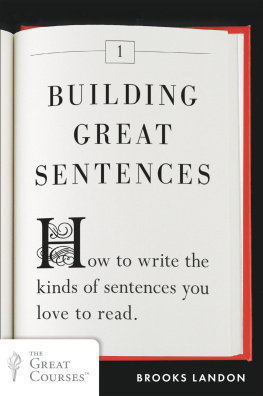

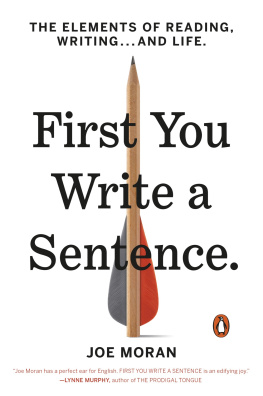
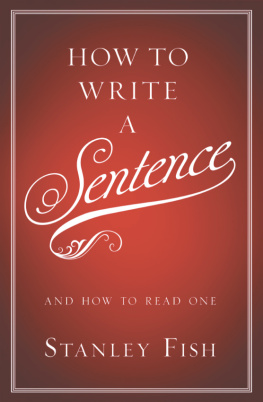
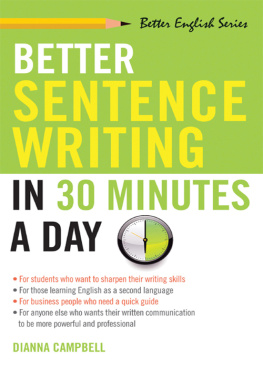
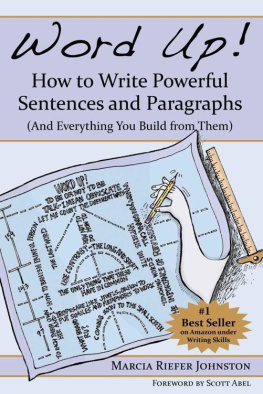
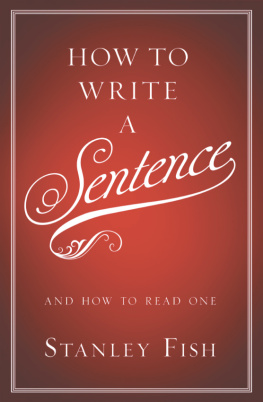

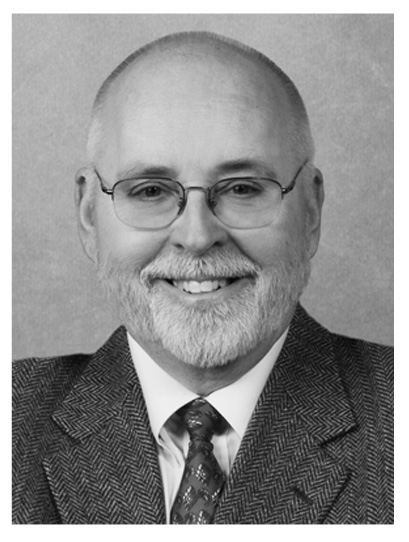


 REGISTERED TRADEMARKMARCA REGISTRADA
REGISTERED TRADEMARKMARCA REGISTRADA